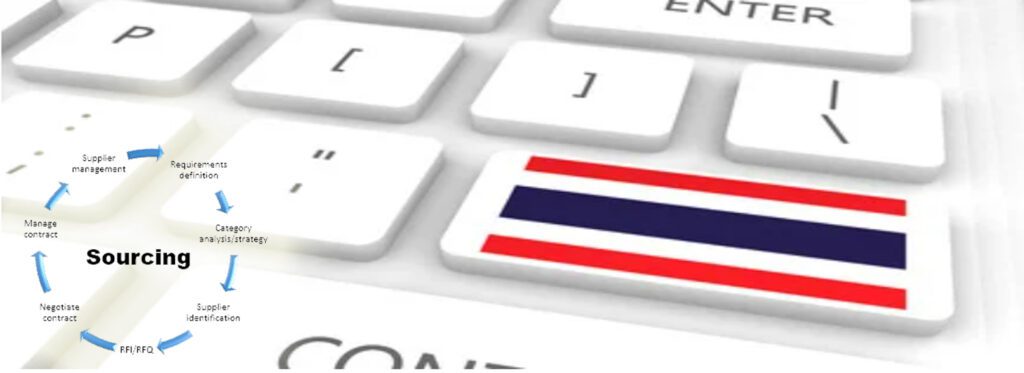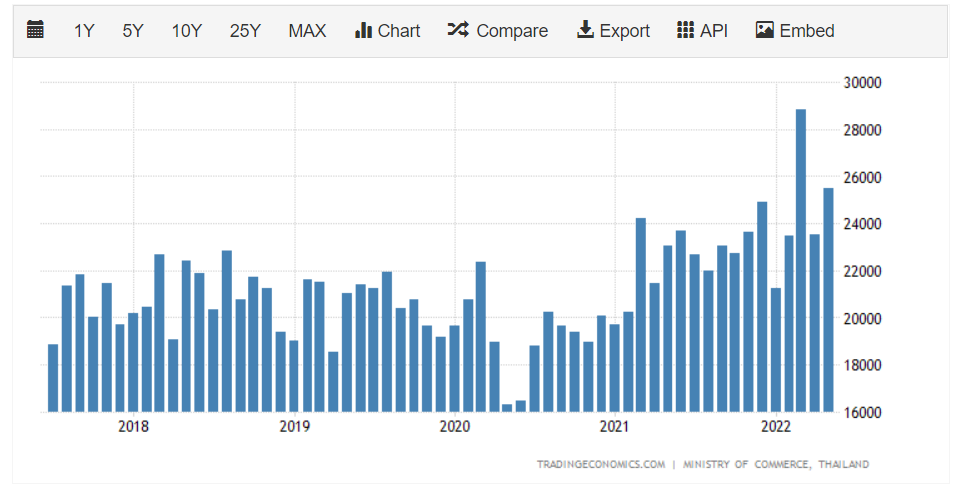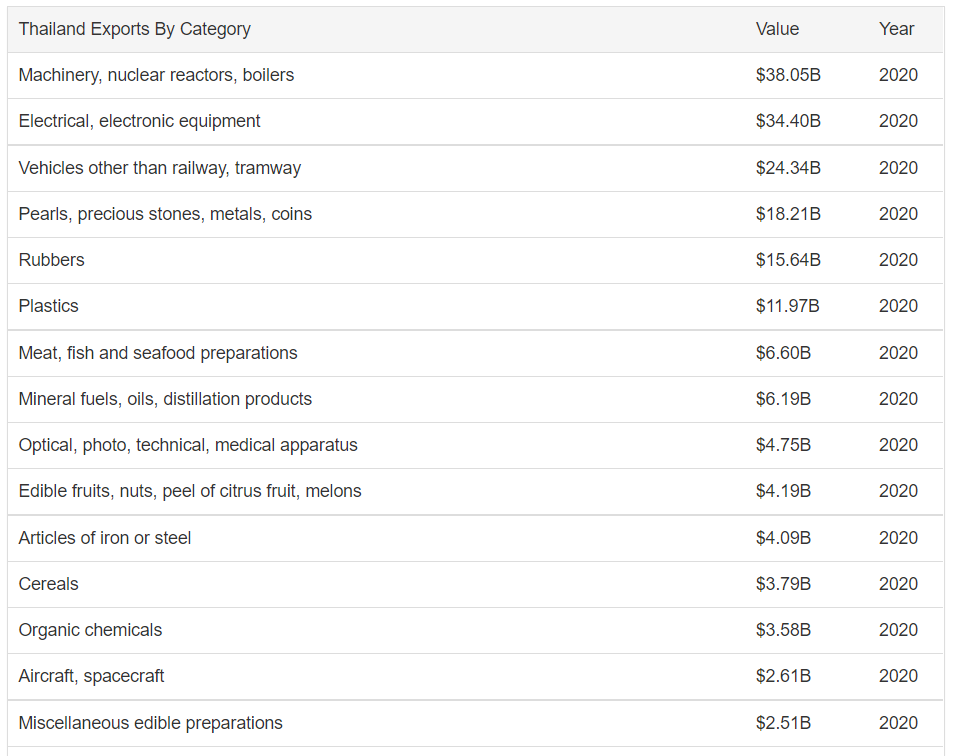ThaiLand

Thailand is the second largest economy in Southeast Asia, and its economy is heavily based on exports. 80% of the country’s exports consist of industrial products. With a national income of nearly 500 billion dollars, infrastructure investments, and investment-oriented economic policies, Thailand is a country that promises stability for foreign investors and importers who want to trade with Thailand.
Thailand is a huge market with a population of close to seventy million. Companies that want to trade with Thailand should definitely get support to identify potential suppliers among hundreds of thousands of companies operating in hundreds of sectors. Collaboration with a sourcing company that dominates the Thai market is important both to save time and to identify the most suitable products at the best prices.
Thailand Demographics:
⦁ Thailand
⦁ Population 69.8 million
⦁ Language Thai
⦁ Area 513,115 km2
⦁ Capital Bangkok
⦁ Major Cities Nakhon, Ratchasima, Ubon Ratchathani, Chiang Mai
⦁ Type of Government Parliamentary Monarchy
⦁ Currency Baht (Bt)
⦁ International Organization Memberships
ASEAN, ADB, ASEM, ESCAP, FAO, IBRD, IDA, IFC, IMF, ILO,
UNCTAD, UNIDO, UNESCO, WHO, WIPO, APEC, EALAF, WTO

Overview Thailand
The Thai economy is based on a private sector-dominated free market system. In this country, which is open to investments from all over the world, the government provides strong incentives for projects that will benefit the country’s economy.
Thailand’s economy is a mosaic of agriculture, industry, metallurgy, trade, and tourism sectors. Despite the growing importance of the manufacturing sector, Thailand’s agricultural sector employs 50% of the workforce. The agricultural sector is mostly made up of family businesses and farms. Services can be obtained from companies that provide international procurement services to supply agricultural products from Thailand.
Thailand’s economy is largely based on exports. Foreign trade volume was realized as 536.5 billion dollars in 2021, 267.4 billion dollars of which were exports, and 269.1 billion dollars were imports. About 80% of exports are made up of industrial products.
Thailand Foreign Trade Legislation (Import – Export Regime)
Thailand’s top exporting countries are The US, China, and Japan. As a member of ASEAN, Thailand makes intensive trade with its community members, especially Indonesia, Malaysia, the Philippines, and Singapore.
Import and export controls in Thailand are under the jurisdiction of the Ministry of Commerce. Today, there is export control on nearly 50 product items. An export certificate is required for some goods, for example, seeds, trees, and tobacco leaves. For some products, for example, sugar and rice, a license is required to ensure a certain level of quality under Export Standard law. Exporters of agricultural products have to be members of trade associations, and these associations can set their own membership rules.
There are only two product groups subject to tax at the export stage; Raw leather and wood products. All taxes incurred in the customs process in Thailand are paid by the Thai Customs Authorities at the amount/rate determined according to the Customs Tariff law.

Thailand Economy Key Sectors
The main export items are electronic circuits, automatic data processing machines, passenger cars, motor vehicles and their spare parts, petroleum oils, rubber, gold, brass, air conditioners, and telephone equipment; The main import items are crude oil, electronic integrated circuits, gold, telephone equipment, passenger cars, and their spare parts, petroleum oil and gases, chemicals and iron and steel.
Thailand’s top exports are machinery with a share of 38%, mechanical appliances (44.8 billion USD), Electrical machinery and equipment with 19% (40.1 billion USD), and iron and steel with 9% (31). 0.7 billion USD). Although 80% of its exports are based on industrial products, Thailand has a high potential for agricultural and livestock products.
Thailand Strategic Market Entry Criteria
Thailand ranks 21st out of 190 countries in the world in terms of ease of doing business. Thailand ranks 40th among 141 countries in the world in terms of global competitiveness. Thailand is among the countries attracting foreign direct investment with 6 100 million dollars in 2020-197. is in line. In 2021, it ranked 26th in the world with a 1.2% share in exports of 267 billion dollars (increasing 17%) and 23rd in the world with a 1.2% share in imports of 269 billion dollars (increasing 29%).
Supply from Thailand: Sourcing
The commercial data on Thailand and the potential of the country show that there are opportunities for companies that want to do business with Thailand.
Thailand is a center of attraction for investors and companies looking for products in the global market. Companies that want to trade and cooperate with Thailand can get support from consulting and sourcing companies that know the market according to their commercial demands. Searching for a supplier for a particular product in the Thai market, obtaining samples from the identified suppliers, negotiating trial orders, preparation of commercial contracts, inspecting production and transportation processes, and organization of logistics processes are among the services you can get from an expert sourcing company.
